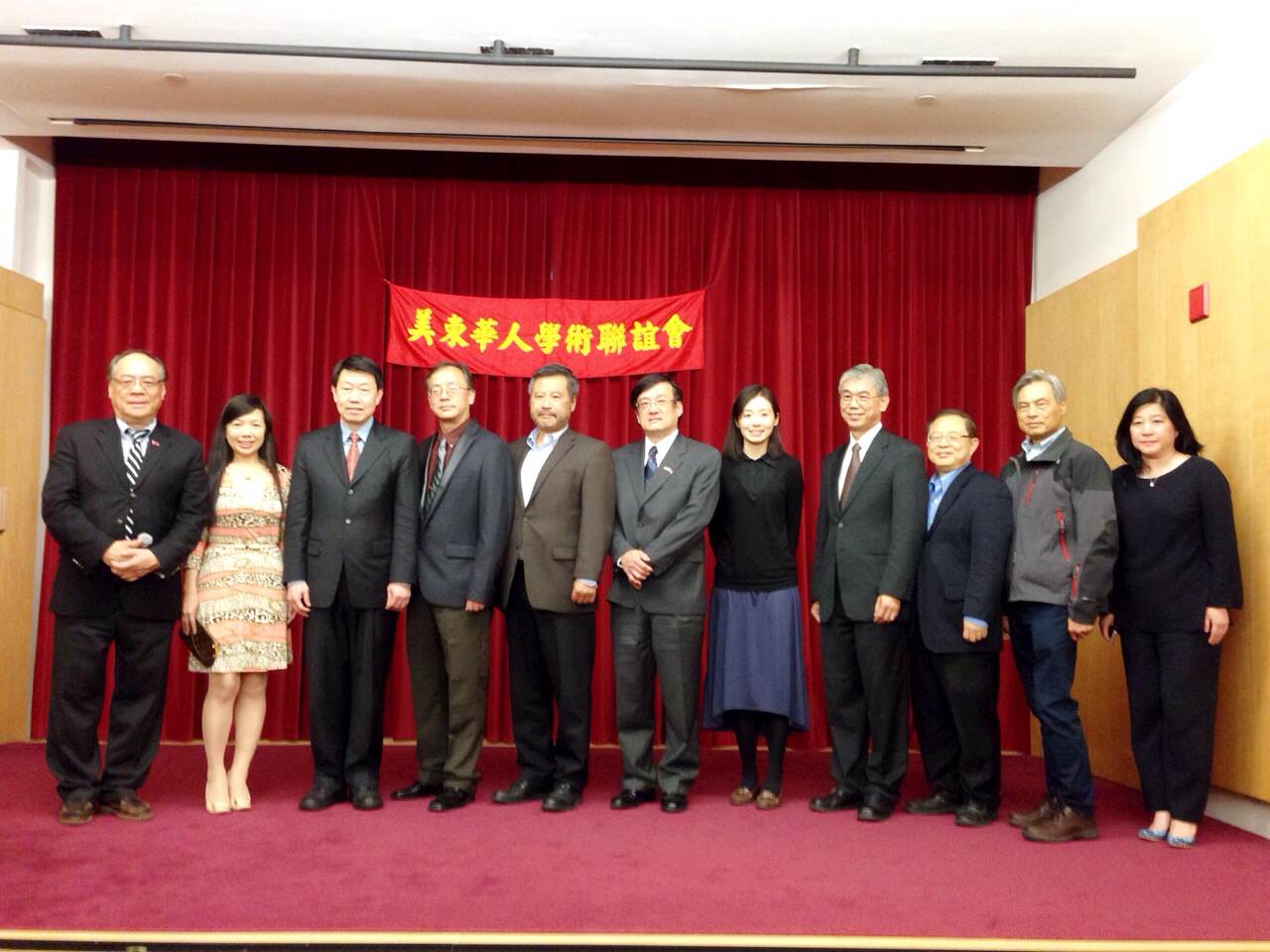TECO-NY Education Division and CAAPS hold academic forum

Ruth Shih, a Chinese teacher in New York City, recommended different resources to not just learn English but be able to speak it like a native, for example popular media such as movies and music which are current, portable, and easily obtained. She also demonstrated some online resources, such as Khan Academy, TED, and Coursera, pointing out their diverse content, ease of use, and features designed to assist language learners, such as Chinese closed captioning.
Dr. Shu-Ping Chang then presented an overview of data in today’s digital world. Dr. Chang works for IBM and has decades of experience in computer science. He has seen the evolution of data from its early days to the unending stream that we experience today. Dr. Chang posed the question of data’s purpose: is it something to hold and have, or something to analyze and use? He explained how in many fields it is crucial to analyze data immediately, for example security, finance, and even prenatal care. Doctors can now diagnose bacterial infections and identify the proper antibiotics for an unborn infant – something that was previously impossible due to insufficient or too-late data.
Continuing on the track of innovation and science, Dr. Benjamin Hsiao, of Stony Brook University, explained some exciting use of the science of water filtering. Dr. Hsiao and his colleagues have been working on creating a cheap, fool-proof filter to provide third world communities with safe drinking water. It had to block out bacteria and viruses, and be easy to manufacture and use. Their lab developed an effective filter from a cloth similar to that used for surgical gowns. Unlike the home water filters most people are familiar with, when the filter they developed needs to be replaced, the water will simply cease flowing through it. And because it is powered by gravity, there are no energy costs. Dr. Hsiao finished this heartening presentation by making the important point that as scientists he and his team can develop and suggest ideas, but it is up to policy makers to determine the rest.
Dr. Steven Chang, Professor of Marketing at Long Island University, closed the forum speaking with his study of eWOM, “electronic word of mouth.” eWOM is an increasingly ubiquitous phenomenon as more consumers use the internet as a shopping platform; many read reviews such as those on Amazon and expect them to be reliable. The advertising world is now targeting exploiting this avenue. Dr. Chang gave examples of some related marketing techniques, designed to influence consumer opinion and increase sales. A major company gave free specially designed toothbrushes to people who had been identified as considered leaders in their “herds” and as most likely to post about a product online. The marketers had accurately predicted how such herd leaders’ opinions influence other people in their networks and this strategy did indeed lead to very successful sales.
The forum, attended by students and community members, was an enriching experience. Speakers fielded many eager questions, and many people asked the organizers: when is the next forum and who will be speaking?
